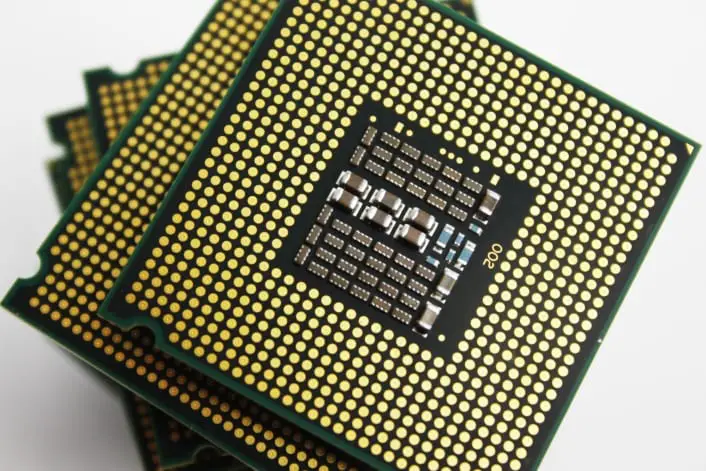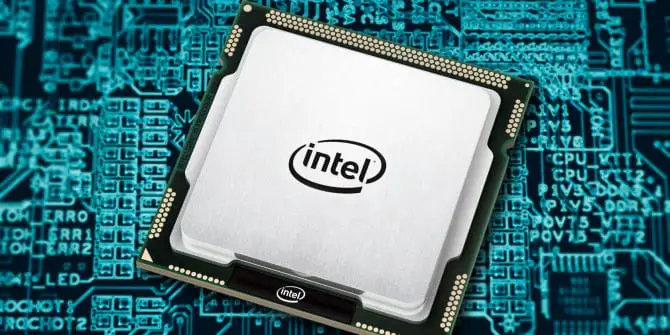One of the most important things to consider when buying a laptop or a PC is whether you need a dual core or a quad core processor. Is there a difference between a dual core and a quad core when it comes to performance? How about speed? Should you consider a quad core processor, or would you invest in a higher core instead? We’ll check these out in this review.
Presenting the dual core and quad core processors

Dual core processors were first introduced in 2005, and these have changed the way computers and laptops were made. With a multi-core processor, computers will work faster, can multitask more efficiently, and thus you can run more apps and software at the same time.
Dual core means the central processing unit has two processors in one circuit. Each of these processors has a cache and a controller, so the two can function as one.
Pros
- Will allow you to run applications faster
- More affordable
- Better performance than single core processors
- Improved clocking times
Cons
- You can only run one application at a time
- It’s hard to find dual core systems today
Meanwhile, a quad core has four independent cores or units which can read and execute CPU instructions. It is similar to the dual core CPU but has separate processors making it faster and more powerful, especially for very intensive computing tasks.
Pros
- Improved multitasking
- Improved performance
- Faster for general computing
- Ideal for advanced tasks
Cons
- Cooling problems
- Shared cache
Features face to face

To differentiate the two further, here are the features that people look for when choosing the ideal CPU for their needs.
Multitasking capacity
Dual core processors will allow users to do more with their computers. And the more cores a computer has, the better it is when it comes to multitasking. Will your laptop run faster with more cores? Yes, but the downside is, you’ll consume more power.
If you’re only using your PC or laptop for browsing, checking out emails, and for social media, then a dual core may even be too much for you. But if you’re into intense gaming, programming, video editing, and other extreme computing tasks, then we recommend getting a quad core or a multi-core processor instead.
Clock speeds
One of the most important specs to check out is the clock speed of the processor. Processor speeds are measured in gigahertz or megahertz for lower or older processors. Basically, a processor with a higher clock speed is faster and will perform better.
But the faster your clock speed is, the more power your processor needs to run. And at higher power, your system will produce more heat. This is why a laptop with faster clock speeds has a shorter battery life. Some laptops with higher clock speeds have larger batteries, which may affect the size and portability of the device.
PCs with faster clock speeds need a more efficient cooling system to prevent the system from overheating. A typical set up would be a larger PC CPU case to make room for fans, heatsinks and water cooling systems.
And if you’re using fans or larger and stronger fans, your system will likely be noisier too. You may need to design an efficient system that won’t make too much noise and vibration.
Processors that have more cores perform at lower clock speeds; therefore, what is better? Should you go for faster clock speed or a CPU with a higher core?
The answer would depend on what you want to do with your laptop or PC. If you’re looking for a computing device for light use or you’re simply working on one task at a time like creating a document or watching a video, then a dual processor with higher clock speeds is the best choice.
But for multitasking and more intensive tasks, a laptop with more cores with slower clock speeds would be best for your needs.
Performance and price point
Laptops that come with quad-core processors are very expensive compared to those with dual processors only. This is an essential aspect that you must consider since you don’t have to pay for an expensive computer with a level of power that you won’t need. Also, you don’t have to settle for a laptop that may not have enough power for your computing needs.
The right balance of price and performance is important. If you are looking for a budget-friendly model that’s ideal for daily light tasks, then a dual-core will do just fine. But if you want to indulge in multiple tasks like gaming, video recording, and streaming live movies or games, then a device with a quad-core will be agood idea.
Also, you must consider some other aspects that make quad-cores more expensive than dual cores. First, since quad cores will let you do more with your PC or laptop, it’s essential to keep your system cool. If you overlook your system’s temperature, you’ll put a lot of strain on your CPU and other components, causing them to fail early.
Users who prefer a higher core tend to spend so much on cooling systems, such as the most efficient liquid-cooled systems as well as better and cooler PC CPUs. And these components are not your average PC or laptop parts because these are very expensive.
So if you want a faster, more efficient, and dependable system, then a quad-core CPU with the best cooling system should be considered.
Your computing specification needs
A dual or quad core computer will be enough to work with the computing needs of most people, and according to other specifications that you may need, both dual and quad core computers are very affordable.
A simple dual core is enough for daily light computing, but for extra power, use quad core. This won’t be too much to handle, and the only disadvantage would be the price. Hardcore computing, gaming, and other tasks that need high-speed programming, then a quad core is a good choice. However, CPUs with more cores than a quad core is something else to consider.
Stand out features
Dual cores are faster with faster clock speeds
Dual cores are simple with just two cores; however, a dual core means a computer will load and work with a single app in the quickest time. Meanwhile, having more cores slows down clock speeds, and thus apps and other programs will take time to load or may run slower.
Quad cores offer to enhance computational power
You might have observed that the benefits seem to favor quad cores or PCs and laptops with more cores, but this is not always the case for most users. There is also a weird notion that using CPUs with twice the amount of CPUs will result in a PC’s twice the amount of computing power. Despite the fact that the CPU with a quad core has enhanced computing systems, most users will not take this at all despite these ability to work with intensive daily computing tasks.
Finding the number of cores of your computer
Is your laptop or PC slowing down? Have you experienced bottlenecks while working on complicated computations? If you have, then you might need a higher core. If you don’t know your processor specs, consider checking it now.
Check the number of cores using your PC or laptop’s TASK MANAGER. This is the easiest way to find out how many cores by pressing the CTRL + SHIFT + ESC keys shortcut or by clicking the Start button and choosing the Task Manager from here. If you’re using Windows 7, press CTRL + ALT + DELETE and access the Task Manager here.
Click the PERFORMACE tab to check out the graphs of the left-hand side with more graphs and info on the right hand. Click the CPU, and you’ll access the CPU graph. A simple graph will be seen by default. You can change this by right-clicking the graph and choosing CHANGE GRAPH and clicking on LOGICAL PROCESSORS.
If you’re using Windows 10, you don’t need to change the graph because this tells you the number of SOCKETS, CORES, and LOGICAL PROCESSOR in your system. If you have one socket, then you have a physical CPU. If you have four cores, then you have a quad core processor. You have four logical processors.
The task manager also gives you information on the L1, L2, and L3 cache. These are highly-specialized caches that allow your processor to better and faster cache information.
When it comes to Windows 7, the task manager will look different. You need to change the appearance so that it shows a graph for every CPU. In this system, this is the only way to find out the number of cores in your CPU.
Just click on the View, CPU History, and One Graph per CPU to see the number of logical processors you have in your system.
You may also access the SYSTEM INFORMATION to check your CPUs without using any software. Simply click the start and then click SYSTEM INFORMATION. It will show the summary of your system, including the type and number of logical processors.
Another way to find the number of cores is by using Google and Third-Party Tools. If you have the exact CPU model from your device’s system information, you can simply Google this for a complete list of specs for the processor.
You may also use a third-party free program. The two most popular are HWiNFO and Speccy. These programs will tell you if your CPU will support virtualization, SSSE3, and vt-x, to name a few. Both of these programs will work great and will also help you consider all the details of your hardware.
The OS matters
If you want to purchase a machine with more physical processors, then you must be using Windows 10 for Workstations. But it’s very rare for a user to require more than one CPU. Meanwhile, Windows 10 can support up to 32 cores for Windows 32-bit and 256 cores for the Windows 64-bit.
Do you need a processor with a higher core than quad core?
Laptops and PCs with dual and quad-core processors are very popular, and currently, more high-end laptops have six and eight-core processors. These laptops are better at multitasking than dual or quad core laptops; however, these may come with very high prices.
You may also consider if you are going to need this much power. For people who are just running basic tasks, then these processors could be too much. However, if you want to protect your PC or laptop and you don’t have any qualms about the budget, then there’s nothing stopping you from getting a higher core processor.
Conclusion
So is a dual core or a quad core processor is for you? Let’s make a roundup of the pros and cons of the two.
Choose a dual core if…
You are a regular user. It’s fast enough for regular computing or for using two or three processes at a time. A dual core processor has a higher clocking speed, so it will perform processes faster. Meanwhile, the higher clocking speeds mean the system may overheat faster, and thus, you need to enhance system temperature by installing fans and heatsinks.
Choose a quad core if …
You want to multitask faster. But faster multitasking means slower clocking times. A quad core processor is also more expensive than a dual core, and this should be considered if you’re shopping for a laptop or PC on a budget.
If you’re only using your computer for regular computing and you don’t multitask, then you might be better off with an affordable dual-core. But if you have an unlimited budget and you need more speed, then a quad core may be what you’re looking for.
Remember that dual core processors are
- Enough for regular computing
- Faster clocking speeds
- More affordable
Remember that quad core processors are
- Will allow you to multitask more efficiently
- Slower clocking speeds
- Expensive
Discover what you can do with a dual core or a quad core processor by first understanding your basic computing needs. Remember the pros and cons of a dual core and a quad core and base your choice from this information.


